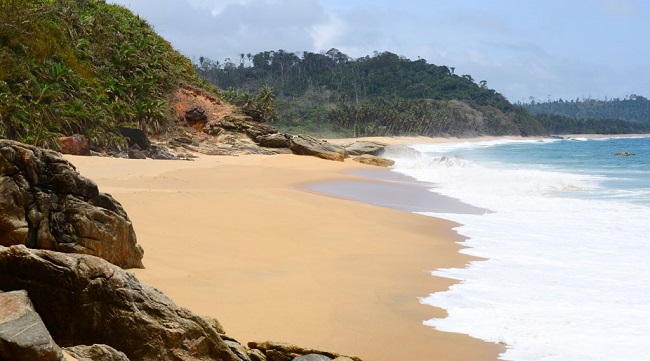A new Initiative funded by the United States Agency for International Development (USAID) will be launched in Fresco, southern Côte d’Ivoire, on Wednesday, February 13, 2019 to promote the wellbeing of households living in an area that is vulnerable to the impacts of climate change, and an urgent need to increase the resilience to climate change for the area and its citizens.

Fresco is a sub-prefecture of and the seat of Fresco Department in Gbôklé Region, Bas-Sassandra District.
Until about a decade ago the Fresco coastal landscape (201 kilometres from Abidjan), despite its rich biodiversity and the significance it holds for a fishing-based economy, was not considered a vulnerable area. Indeed, much attention was not paid to an area where local communities and the coastal ecosystems they depend on are exposed to extreme and harsh climate events such as storms, high winds and floods.
With an increased understanding of climate change impacts and how they interact with and exacerbate other drivers of environmental degradation and economic decline, such as deforestation and overfishing, solutions can be identified to turn the tide.
The activity getting underway in Fresco will bring together relevant stakeholder groups including the Ivorian Government, civil society and development partners, to support increased environmental and economic resilience in the landscape, especially for women and youth.
The Fresco coastal landscape includes the Fresco Lagoon and the upstream watershed consisting of the Bolo and Niouniourou rivers, which provide the lagoon with the fresh water, essential to maintaining a healthy balance of salt and fresh water. The lagoon has been classified as a Ramsar Convention site, defined as a wetland site of international importance. This is due to the richness of its animal and plant species, which include several endangered ones like the manatee, African grey parrots and several species of sea turtle. Bordered by mangroves, some of which have been severely degraded. The lagoon is said to be an important breeding ground for numerous species of fish, a key source of protein and income for surrounding communities.
Recent studies show a drastic decline in mangrove forests. The area covered by mangroves between the towns of Fresco and Grand Lahou, another lagoon-centred town 62 kilometres to the east, has fallen sharply from 15,000 hectares to around 6,000 hectares, and the mangroves are being replaced over time by grasses and shrubs, which reduce the habitat for fish and of no value to agriculture due to the high salt content of the soils.
The loss of these mangroves has led to a decline in the productivity of fisheries, which has in turn increased poverty among local populations, especially women and youth.
In response to these realities and the interest of local communities to work in concert with relevant stakeholder groups, USAID through its funded Programme, West Africa Biodiversity and Climate Change (WA BiCC), awarded a grant to IMPACTUM – a local non-governmental organisation, based in Abidjan, with a satellite office in Fresco, to implement interventions in the landscape.
This initiative will be implemented in collaboration with the Ivorian Government, relevant national institutions and local communities, and is expected to support sustainable livelihoods, maintain the capacity of ecosystem regeneration and enhance community resilience. This includes restorating Fresco’s mangrove and upland forests and biodiversity habitat.
To this end, Government authorities and development partners will work closely with local communities to implement different approaches to conserve and sustainably manage the mangrove and upland forests as well as the lagoon itself taking into account the area’s rich biodiversity. Activities are planned to facilitate local fishermen’s access to the tools necessary to manage resources at the Fresco Lagoon estuary in an efficient and sustainable way. Farmers upstream will be supported to use agroforestry techniques to improve the resilience of their plantations, and climate change related information will be integrated into local policies to mitigate and adapt to the effects of climate change over time.
The launch, according to the promoters, will benefit from the participation of high-level government officials from the Ministries of Environment, Water and Forests, Agriculture and Fisheries. Authorities from Fresco will receive stakeholders from the local communities and representatives of the relevant national institutions to review the programme implementation process, adopt, and provide collective support to ensure its success.
Participants will also embark on a field trip to the Fresco landscape to interact with the local people, and to see at firsthand, the issues pertaining to the landscape. Organisers are hopeful that this initial investment will raise awareness of the issues and the potential of sustainable natural resources management in Fresco, which will in turn interest other donors or private sector parties to keep the work going after the initial phase. Activities will be monitored regularly to show progress and to generate the lessons needed to improve the management not only of the Fresco Lagoon Landscape, but the imposing coastline of the Cote d’Ivoire.
